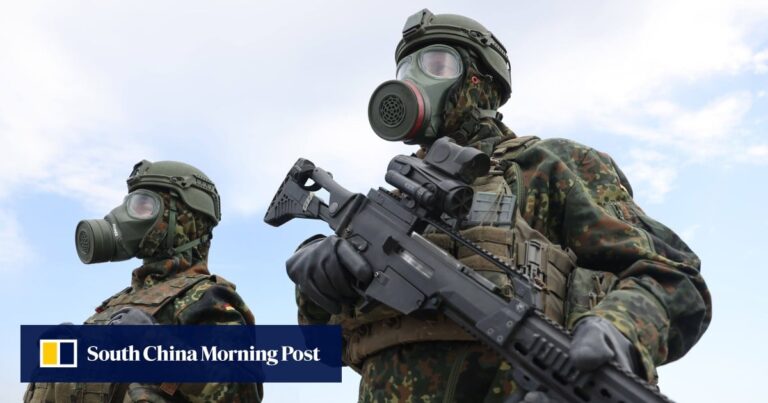Washington has harshly portrayed China’s role in supporting Russia’s war in Ukraine to its transatlantic military allies, arguing that China cannot support Moscow while seeking to enjoy normal relations across Europe.
Julian Smith, the US permanent representative to NATO, said on Wednesday that US Deputy Secretary of State Kurt Campbell briefed NATO countries in Brussels this week and stressed that Beijing was supporting Moscow “through the provision of dual-use weapons that essentially enable Russia to wage this war inside Ukraine.”
Campbell, a former national security adviser for Indo-Pacific affairs to U.S. President Joe Biden, said during Tuesday’s meeting that China’s aims go beyond simply supporting Russia.
The envoy said Beijing has sought to maintain normal diplomatic and economic ties with Europe while publicly downplaying its support for Moscow.
advertisement
advertisement
Smith described the meeting inside NATO headquarters as a “really important moment” and said the United States and its partners and allies were doing “everything” to summon such support.
They also sought to let China know that they “do not believe that China can credibly declare its neutrality in Russia’s war in Ukraine.”
She said it was “very clear” that China had “picked a side.”
Smith claimed Moscow has received items from Beijing including machine tools, microelectronics, drone technology and nitrocellulose – the main ingredient in modern gunpowder but also used in certain lacquers and paints.
Smith did not elaborate on what evidence Campbell had provided, but European media reports said he had provided “as detailed and specific evidence as possible.”
After the NATO briefing, Politico Europe reported that the State Department’s number two official said European countries said it was “impossible” to maintain normal relations with China if China continued to “covertly” foment what some have described as the most unstable European conflict since World War II.
Earlier this month, British Defence Secretary Grant Shapps told the London Defence Conference, an annual forum on security issues, that US and British military intelligence had found “evidence of cooperation between Russia and China on combat equipment for use in Ukraine”.
Mr Shapps called the flow of “lethal aid” from China to Russia and then to Ukraine a “significant development”.
In response to the British minister’s comments, US national security adviser Jake Sullivan distanced himself from Shapps, saying “so far” the Biden administration had not seen any plans to deliver lethal aid.
Sullivan said he looked forward to speaking with his British counterpart to better understand what that statement specifically referred to.
Meanwhile, U.S. Secretary of State Antony Blinken is due to meet with 31 foreign ministers from NATO countries in Prague on Thursday and Friday.
Smith said on Wednesday that this week’s meeting would be “informal” and that ministers would discuss some of the deliverables they planned to make ahead of a NATO summit in Washington in July.
The issue of Beijing’s position on Ukraine could come up at the Prague ministerial meeting, she added, noting that “this issue comes up frequently within the NATO alliance.”
On the issue of US support for Ukraine’s NATO membership, Smith told reporters it was “unlikely” that Kiev would be invited to the July summit.
But she said the Biden administration would do everything in its power to help Ukraine “ultimately cross the bridge to membership.”
At a NATO summit in Vilnius last year, leaders of the transatlantic security alliance reached an agreement that confirmed Ukraine’s future with NATO, without setting a timetable for membership.
“If our allies agree and the conditions are met, we are in a position to invite Ukraine to join the alliance,” the declaration states.
Smith told reporters on Wednesday that a declaration from this year’s NATO summit would include “new language” about Ukraine’s membership aspirations, adding that there were “very important and useful ideas” currently circulating among member states.

